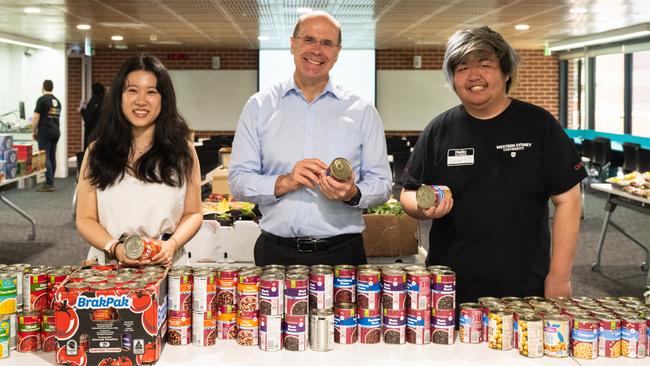Student poverty shouldn’t be university rite of passage

Helping relieve the HECS debt burden on students, while welcome, still does nothing to address the root cause of the problem.
Cost-of-living pressures are forcing Australian students into poverty and to simply give up their studies altogether.
Instead of thriving at uni, we see so many students struggling. They are having to make impossible choices between putting a roof over their head or putting food on the table – and that is before they deal with the cost of study, transport and textbooks.
The release of new findings by researchers from the universities of Wollongong and Tasmania reveal just how prevalent the food insecurity problem for university students really is. Shockingly, it is getting worse, not better.
In short, 53 per cent of students at the University of Tasmania surveyed last year experienced food insecurity; up from 42 per cent in 2022. The numbers of students experiencing severe food insecurity jumped from 17 per cent to 29 per cent.
That’s more than half of all students worried about running out of food or going hungry, skipping meals or simply not getting enough food to sustain them through a week.
This is staggering. Going hungry while you’re trying to study shouldn’t be a rite of passage.
The new statistics mirror what we see here in western Sydney. One in two students at Western Sydney University are also struggling to get enough food during the week.
It is affecting their wellbeing as well as their education. I recently spoke with a student at one of our free community dinners who is sleeping in their car to get by. Another student spoke of the dinner providing their only healthy meal of the week. It is not surprising that this level of hardship means that many students are struggling to stay in university at all.
How do you close that gap? Youth allowance is $47 a day if you’re living out of home. Yet the median rent in Sydney is more than $100 a day. This does not add up for a student to have enough money to eat, study and live. We know students aren’t coming to university in the same numbers compared with pre-pandemic levels, particularly those from poorer backgrounds. The education system is heading in reverse for poorer students, with higher education enrolments from low SES students declining by 10 per cent since 2019.
Sadly, the very people who should be part of this important social mobility opportunity are the people most at risk of dropping out in big numbers or aren’t coming to uni at all.
Here at Western, we are helping to get our students through their studies by being in the education and food business.
Our food pantries across our campuses are dispensing staples like rice, oats, milk and other essential items. The pantries even stock some of our own-grown fresh veg from our Hawkesbury campus. The pantries have had more than 3400 visits since they began mid last year, giving students access to fresh produce, pantry staples and hygiene products at no cost.
We also regularly put on student breakfasts and dinners. We have 23,000 planned for this year alone, bringing domestic and international students together to share a nourishing meal.
But more could be done to help ease the burden. International students – many of whom have poured their families’ life savings into studying in Australia – are also doing it tough and all too frequently are going hungry.
Expanding subsidies to international students for public transport, for example, would help bring some welcome day-to-day cost-of-living relief for students who are particularly at risk when it comes to food insecurity.
More broadly though, we need to recognise that our society is unfairly stacked against young people.
It’s tough going for a young person just to get into a rental property, let alone the housing market. And, of course, the fees for university are now astronomical for some degrees. Over $50,000 for a basic three-year arts degree is pricing many young people out of their dreams.
We’re asking students from the most disadvantaged backgrounds – first in family, women, Indigenous people – to pay the highest fees for the lowest graduate salaries.
Fairness needs to be restored to the unfair fee structure for university courses.
Instead of discouraging young people from study, we need to do more to support everyone who wants a university education. Young people from all backgrounds deserve opportunities to lift up their lives through study and hard work.
Because if we don’t, we’re not only making it very hard for young people to get ahead, we are ultimately undermining our own future.
Professor George Williams AO is the vice-chancellor of Western Sydney University



Trying to get ahead by studying at university shouldn’t be a recipe for poverty.